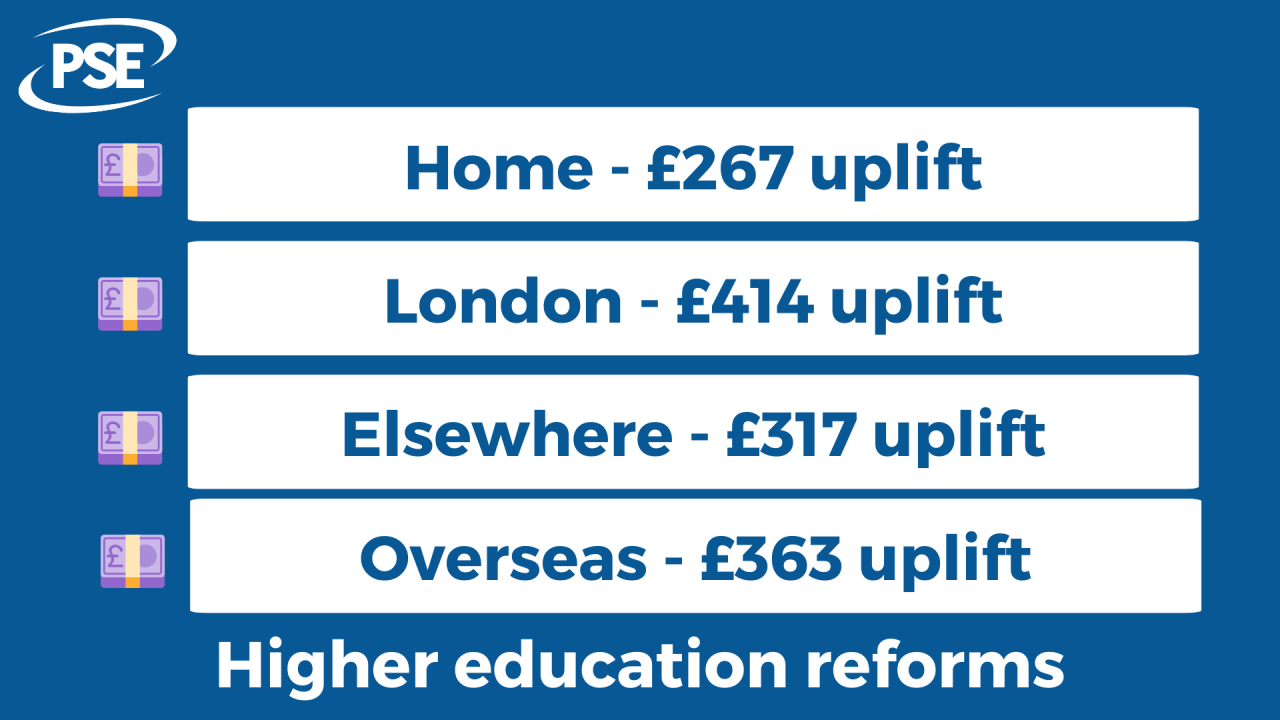The government has announced a range of measures that will work to stabilise and improve higher education.
Students are to be supported thanks to a 3.1% increase to their maintenance loans, to ensure that the most disadvantaged learners can continue to benefit from the education they desire. Linked to inflation, this increase comes as maintenance loans have not increased for several years despite the cost of living increasing.
It is proposed that the increase in support will allow for an additional £414 per year extra for those students from the lowest income families.
Alongside this, the government is also increasing the cap on domestic tuition fees for universities after seven years. Much like maintenance loans, tuition fees have not kept up with inflation, leaving many education providers financially unstable. Taking effect at the start of the 2025-26 academic year, maximum fees will increase to £9,535, however those who have taken out student loans will not see their repayments increase as a result of the increase.
As was the case before the increase, those who have taken out a student loan will not be required to make repayments if their income is below the threshold, whilst any remaining debt and interest will be written off after 40 years.

Bridget Phillipson, Education Secretary, said:
“This government’s mission is to break down barriers to opportunity, which is why we are doing more to support students struggling with the cost of living despite the fiscal challenges our country faces.
“The situation we have inherited means this government must take the tough decisions needed to put universities on a firmer financial footing so they can deliver more opportunity for students and growth for our economy.
“Universities must deliver better value for money for students and taxpayers: that is why this investment must come with a major package of reforms so they can drive growth around the country and serve the communities they are rooted in.”
Whilst students will, in theory, be paying more for their education, the government has called on universities to improve opportunities for students. This especially relates to those from more disadvantaged backgrounds. Education providers will be expected to player a bigger part in expanding access for more disadvantaged learners.
More reforms are set to be announced by the Department for Education in the coming months, as recent data has identified that the gap between disadvantaged students and their peers at the age of 19 is the highest on record.
Image credit: iStock



















